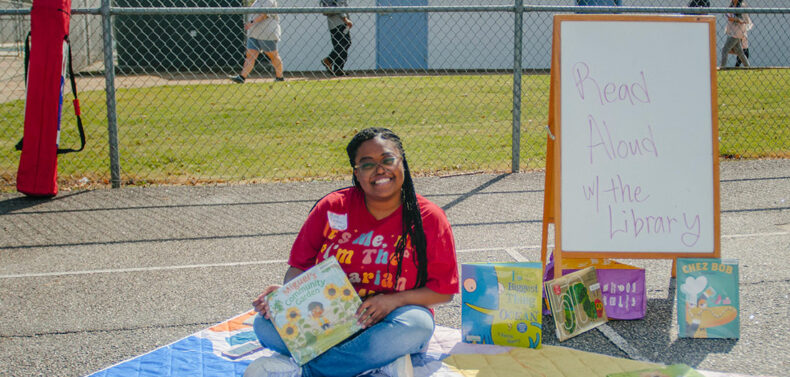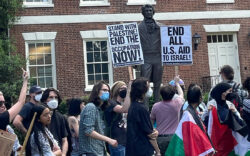Athens is full of various resources from health care to legal advice, but it’s not always easy for the residents who need them to take advantage of such services—or even to find out they exist. That’s why The Backpack Project of Athens (TBP) held a free resource fair on Oct. 14 at the Lay Park Community Center.
Throughout the early afternoon, residents stopped by for Chick-fil-A, sanitary kits, health care services, legal and financial advice, and employment opportunities. The event catered to children as well, offering books, school supplies and outdoor activities. A bingo scorecard was given to every attendee at the door. If they visited at least five service providers in a row, they would win a prize.
TBP, a student-run nonprofit at UGA, is mostly known for its street outreach. Like its name suggests, backpacks are at the forefront. On weekends, volunteers distribute backpacks containing essential supplies around town for anyone who needs them. The organization also hosts volunteer programs based on service gaps identified in the community, hoping to raise more awareness of the homelessness problem in Athens.
The resource fair is one of TBP’s biggest collaborations so far, securing a total of 30 partners and 11 sponsors. Some of the providers who participated include the Athens Regional Library System, American Red Cross, Our Daily Bread Community Kitchen and Project Safe.
Claire Grant, co-director of community engagement at TBP, and Nidhi Mannikoth, the director of donations and partnerships, were the main planners of this fair. As upperclassmen in leadership positions, they believe it’s important for students to understand the community that they are a part of and the university’s overall influence on the Athens area.
Resource accessibility is a major concern. There are many different services available in Athens, but their accessibility depends on funding, Grant said. However, individuals living in extreme conditions are less likely to find these resources.
“There are many barriers to accessing services within the community, including transportation, technology, language, literacy and more,” Grant said, “which is why we wanted to get many services together in one place and make it as accessible as possible for everyone.”
Street Love Ministries (SLM) was one of the many service providers present. As a longstanding faith-based organization in Athens, SLM operates a mobile setup to hand out supplies such as food, clothing and children’s toys. The nonprofit feeds hot meals to more than 350 people and aids more than 400 homeless individuals every month. Co-founder William Puckett attributed this impact to the work of dutiful volunteers.
“It’s almost like a ministry within a ministry when you see volunteers begin to understand what is happening in the real world, in our communities,” Puckett said. “Their eyes are opened, and their hearts are warmed.”
Several UGA student organizations participated in the resource fair as well, like the Period Project. The Period Project advocates for menstrual health through service and education. It is a part of a “nationwide movement to end period poverty and period stigma.” Similar to TBP, members will pack menstrual products together on a weekly basis and distribute them into the community. At the fair, club members handed out period kits and discussed their plans for expanding menstrual product accessibility across campus.
The Hispanic Student Association (HSA) was another one of TBP’s partners this year. HSA volunteers helped translate for Spanish speakers, creating a more inclusive environment. Second-year student Barbara Machado-Requea said that connecting through language can really make a difference in someone’s day.
“When you’re able to speak the language of somebody that would otherwise be very lost in what you’re doing during the event, being able to see them, their faces light up… it’s very rewarding,” Machado-Requena said.
HSA members emphasized the need to promote events like the resource fair in more Hispanic spaces, and to clarify that translation services will be available. Athens has a Hispanic population of over 11%, making it the city’s second-largest minority group. While the event was heavily advertised on social media, not everyone has access to the internet. Thus, many Spanish speakers rely on word-of-mouth for various resources. Exposure to such information is critical for those in need, according to HSA.
Like what you just read? Support Flagpole by making a donation today. Every dollar you give helps fund our ongoing mission to provide Athens with quality, independent journalism.










